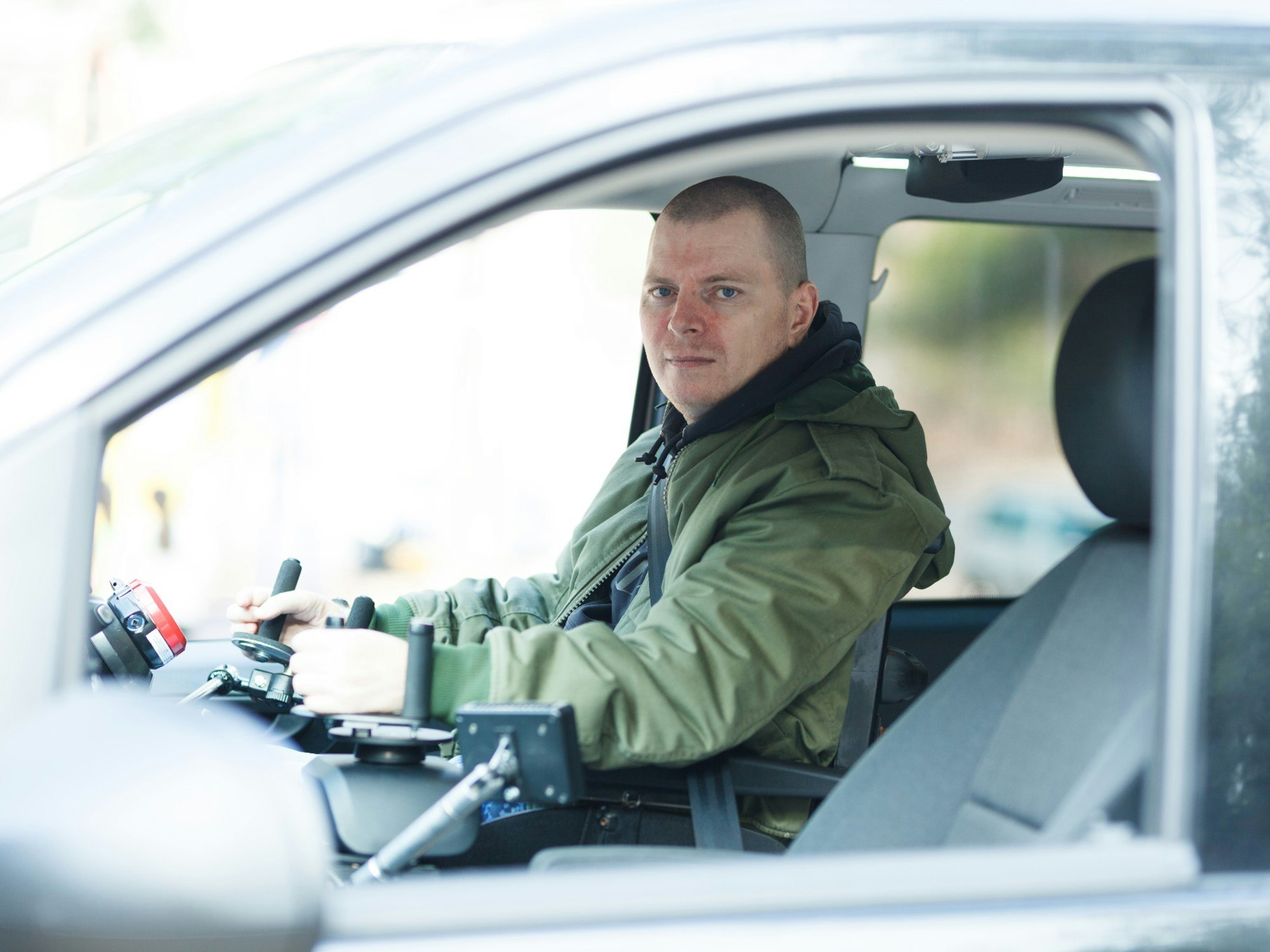Learning to drive with disability
Last updated

Driving provides a kind of independence and allows you to travel more around your community or to participate in more lifestyle activities.
Key points
-
Many people with disability can learn to drive a car
-
Getting your licence might require assessments from a doctor or occupational therapist
-
Your licence may have conditions imposed, but as long as your car meets those conditions you will be able to drive it independently
Having a disability does not always prevent you from being able to get a driver’s licence and if learning to drive is a goal of yours there are ways you can be supported to achieve your goal.
It is important to look at the rules around licensing in your State or Territory and to do some research into what options are available to support you to learn to drive, but we have outlined the basics in this article.
Getting your licence
The requirements which people with disability might need to meet to get their licence are different in every State and Territory, as licensing is not controlled by the Federal Government.
In most cases, you will need to undertake a driving assessment to determine if your disability affects your driving – this can include physical disabilities, like loss or absence of limbs, but can also include psychosocial disabilities.
Your doctor can tell you whether your disability will affect your driving or not and can give you a report on whether you are fit to drive.
In some cases you might need an off-road assessment, completed by an occupational therapist, to determine whether you have any visual, cognitive or physical barriers which could make it difficult for you to drive.
If they identify any barriers, a strategy can be developed to help you mitigate them, for example, you might need vehicle modifications to be able to drive safely.
You may also need to do an on-road assessment, which involves you driving a dual-controlled car, as all learner drivers do when taking lessons, so that the driving instructor can intervene if they need to.
Your occupational therapist may also be in the car to make sure you have the ability to drive safely.
To find out what the specific rules are in your State or Territory, you can visit these websites:
Specialised lessons
Driving instructors across Australia are providing more and more options for driving lessons that suit people with a disability.
If you have an intellectual disability or process information differently, you may need more lessons than other people your age to make sure you are confident and safe driving on your own.
Instructors can be specialised in supporting neurodiverse learners and may have experience in using particular teaching styles which suit how you learn.
They are often more patient and understand that people who are neurodiverse, in particular, have diverse support needs.
If you have a physical disability, you might need to have lessons delivered in your own modified vehicle since this will be tailored to your specific needs.
You can look for an instructor who is willing to teach you in your car or who has their own modified car.
Driving instructors who focus on teaching people with disability, and occupational therapists with driver training, can be found using the search function on our Disability Support Guide website.
Licence conditions
When you meet the requirements to get a licence you may need to have special conditions added to the licence because of your abilities.
Having licence conditions means you can only drive a vehicle that meets those conditions, so as long as your personal car has the modifications you need you are able to drive it.
For example, if you only have mobility for using the pedals in one leg, your licence conditions may include that you can only drive an automatic and one foot is enough to control both the accelerator and brake pedals.
Other conditions might include that additional mirrors need to be fitted to your vehicle if you have a limited ability to turn your head or that you must use specific driver aids while you are driving.
It is likely that if you have vehicle modifications, they will be added as a condition on your licence in any State or Territory.
For information about vehicle modifications, read our article, ‘Vehicle modification ideas to fuel your independence‘.
NDIS funding for driving
If driving is one of the goals in your National Disability Insurance Scheme (NDIS) plan, you may be able to use funding for vehicle modification to help you get in the driver’s seat.
Funding could also be used to attend appointments with therapists or specialists, such as occupational therapists with driving training, to help you prepare for driving lessons and gather the assessments you need.
The NDIS may provide funding for driving lessons under the increased social and community participation heading of your plan and many specialist driving instructors are registered NDIS providers.
Do you have a goal to get your driver’s licence? Tell us why driving is important to you in the comments below.
Related content
Your questions about transport funding answered
Disability Parking Permits: How can you get one in your state?
Vehicle modifications to fuel your independence